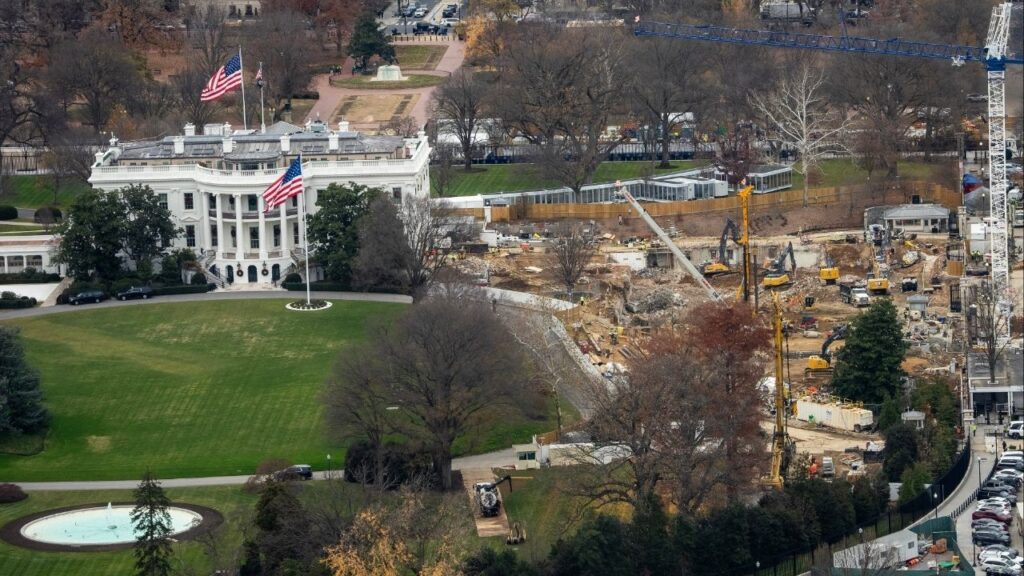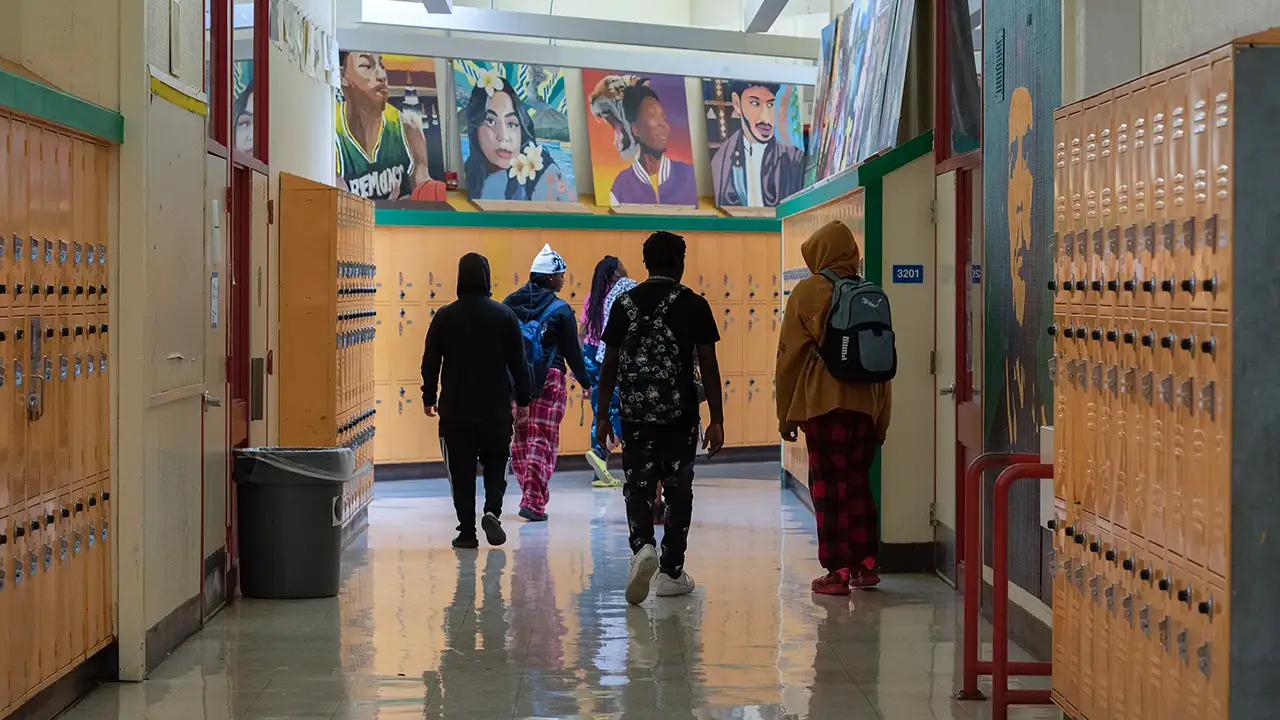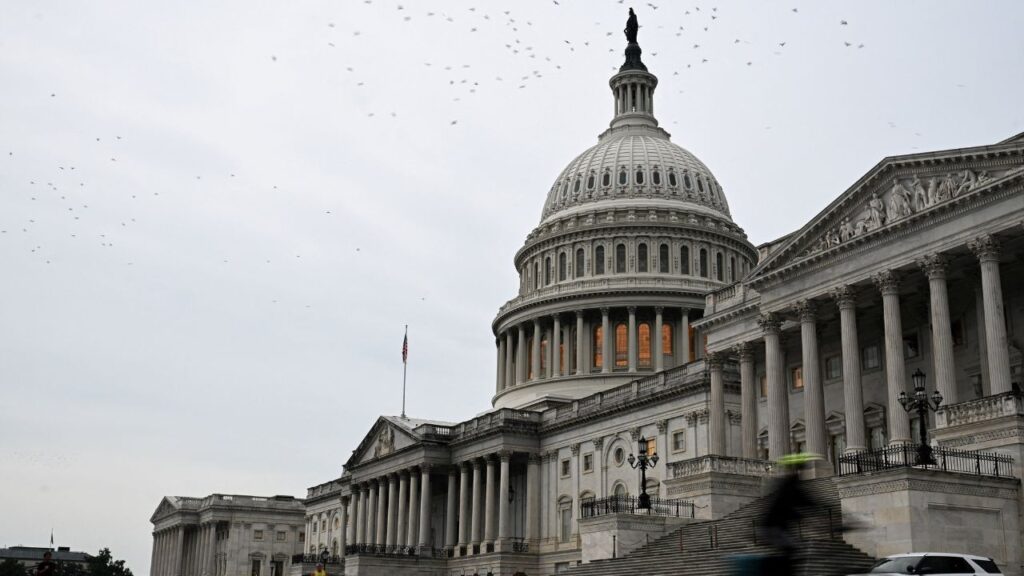California schools urged to stay calm and maintain diversity programs amid Trump's DEI crackdown. (CalMatters/Laure Andrillon)

- California schools are advised to maintain their diversity programs despite Trump's order to abolish them.
- Attorney General Rob Bonta affirms the legality of DEI programs and schools' right to promote them.
- Black student clubs, with a long history of supporting all students, face an uncertain future under the directive.
Share
California’s K-12 schools are getting some clarity on how to handle the Trump administration’s sweeping orders to abolish diversity, equity and inclusion programs.
The answer is: Do nothing. Not yet, anyway.

Carolyn Jones
CalMatters
“Time to take a breath. Just because Trump ordered it, doesn’t mean it’s going to happen,” Noelle Ellerson Ng, a legislative advocate for the School Superintendents Association, told California school administrators last week. “Executive orders on their own can’t really accomplish much … There’s a distinct difference between activity and productivity.”
Last week, the U.S. Department of Education announced it may withhold funding for any school that has programs focused on race. That could include clubs, activities, prizes, graduation ceremonies “and all other aspects of student, academic and campus life,” according to the directive.
“With this guidance, the Trump Administration is directing schools to end the use of racial preferences and race stereotypes in their programs and activities — a victory for justice, civil rights laws, and the Constitution,” Craig Trainor, acting assistant secretary for civil rights for the education department, said in a statement.
Schools have until Feb. 28 to end the programs.
On Friday, a judge temporarily blocked some of Trump’s orders related to diversity, equity and inclusion. The ruling prevents the federal government from cutting funding, but it doesn’t stop it from investigating schools’ race-related programs – at least for now.
Nearly every high school in California has at least some programs focused on students’ race. Black, Latino and Asian student clubs are common, as are celebrations like Chinese New Year or Cinco de Mayo. In recent years, more students — particularly Native American students — have worn ethnic regalia to graduation ceremonies, or even held separate ceremonies.
About 8% of California’s K-12 funding comes from the federal government, mostly as payments for special education and Title I grants for schools where at least 40% of the student population is low-income. If the federal money disappears, those schools and students will be most affected.
Attorney General Rob Bonta said he was reviewing the Department of Education’s directive, but in general, he said that DEI programs are legal and schools have a right to promote them.
“This is not the time to run. The governor is going to fight, the attorney general is going to fight, and we’re going to fight, too,” said Angie Barfield, executive director of Black Students of California United.
Related Story: Preschools Lose Students as Transitional Kindergarten Expands in California
Attorney General Weighs In
State Superintendent of Public Instruction Tony Thurmond didn’t immediately respond to requests for comment, but earlier in February he urged schools to “stay focused” and not get distracted by Trump’s orders.
“Now is not the time to be distracted by external efforts to demean and divide,” Thurmond wrote to school authorities. “Please continue to stay the course with local programs that are producing results. Now is the time when our students need consistency, support, and community more than ever.”
Some parents were dismayed at the directive, saying it would limit their children’s exposure to other cultures. Katie Walton, a mother of three Native American children, said she worried how it would impact Native American programs and curriculum, particularly a recently passed state law requiring schools to teach about the genocide of Native Californians during the Spanish and Gold Rush eras.
“Me and my husband will teach our kids what they need to know, but I’m worried about all the other kids who might not get this information,” said Walton, who lives in Madera County and whose children are part of the North Fork Rancheria of Mono Indians. “It makes me sad.”
Angie Barfield, executive director of Black Students of California United, said she’s received calls from school administrators throughout the state who are unsure whether to disband their campus Black student clubs.
She tells them to “stand firm.”
Related Story: ‘A Step Backwards’: How Federal Threats to DEI Impact CA Schools
Black Student Clubs Began Decades Ago
At least 3,000 high school students in California belong to Black student clubs, although the number is probably much higher, Barfield said. The groups date from the late 1960s, when students at San Francisco State started the first Black student union, and have spread to high schools and colleges nationwide.
Traditionally open to everyone, the clubs give students a chance to socialize, discuss issues and advocate for the needs of Black students. The students in Barfield’s organization also go on college tours, run a youth senate and advocate for student health.
“These clubs have a long track record of supporting not just Black students, but all students,” Barfield said. “This order is taking us backwards.”
Ng and her colleagues are advising school administrators to consult with school boards, lawyers and community members to see what their options are, and how to respond. But, she said, it’s important to stay calm until there’s more specific information from Washington, D.C., such as a Congressional order.
“Regardless of what the Trump administration does, public school doors are still open and kids still show up,” Ng said. “So quitting is not an option, and we have to figure out how to respond.”
Since taking office in January, Trump has made a series of other steps to reshape public schools, some of which are already moving forward. He vowed to dismantle the U.S. Department of Education, legalize vouchers for parents to use public money to send their children to private school, and overhaul Title IX, which bans discrimination based on gender.
Earlier this month, the so-called Department of Government Efficiency canceled $900 million in education contracts, which paid for reviews of teaching strategies, literacy programs and special education support, among other services.
Trump also eliminated a law enforcement provision that protected schools, hospitals and other “sensitive locations” from immigration enforcement. That move has thrown immigrant communities into panic, with parents in some areas afraid to send their children to school.
About the Author
Carolyn Jones covers K-12 education at CalMatters. A longtime news reporter, she’s covered education for nearly a decade, focusing on everything from special education to state funding policies to inequities in student achievement.
About CalMatters
CalMatters is a nonprofit, nonpartisan newsroom committed to explaining California policy and politics.
RELATED TOPICS:
Categories



















